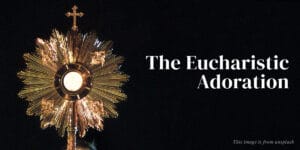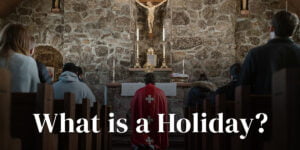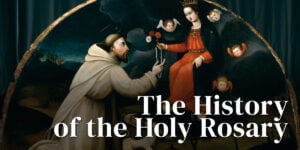Devotion to the Holy Eucharist started during the ministry of the Apostles as they gave importance to the Body and Blood of Christ in the form of Bread and Wine. The church and the Council of Trent strengthen the fact that each particle of the sacred host is part of the body of Christ. Until in the 9th century, the waffle type of bread was made as the Eucharist so there will be less crumb. In the previous century, it was important to receive Holy Communion once a year until Pope St. Piux X told the faithful to receive it often.
The feast of the Corpus Christi was first promoted by St. Juliana of Liège because of her vision of the moon with a stain that represents the lack of feast for the Body and Blood of Christ. It was also her dream that this feast be celebrated in the Catholic Church. She received a vision of Our Lord where she was instructed to plead for this feast. Until it was eventually celebrated in Liege in 1246. However, as proposed by St. Thomas Aquinas to Pope Urban IV the feast was instituted on August 11, 1264.
Every Corpus Christi feast, a High Mass (special mass for the Novus Ordo) is celebrated followed by a procession of the Eucharist. During the procession, we must kneel before the Eucharist because this is the Body our Lord Jesus Christ, our King and our God. We must follow the examples of the saints, especially the Angels who kneel before the Sacred Host during the consecration to adore the Lord.
St. John Chrysostom taught us, “When the Eucharist is being celebrated, the sanctuary is filled with countless angels who adore the divine victim immolated on the altar.”





